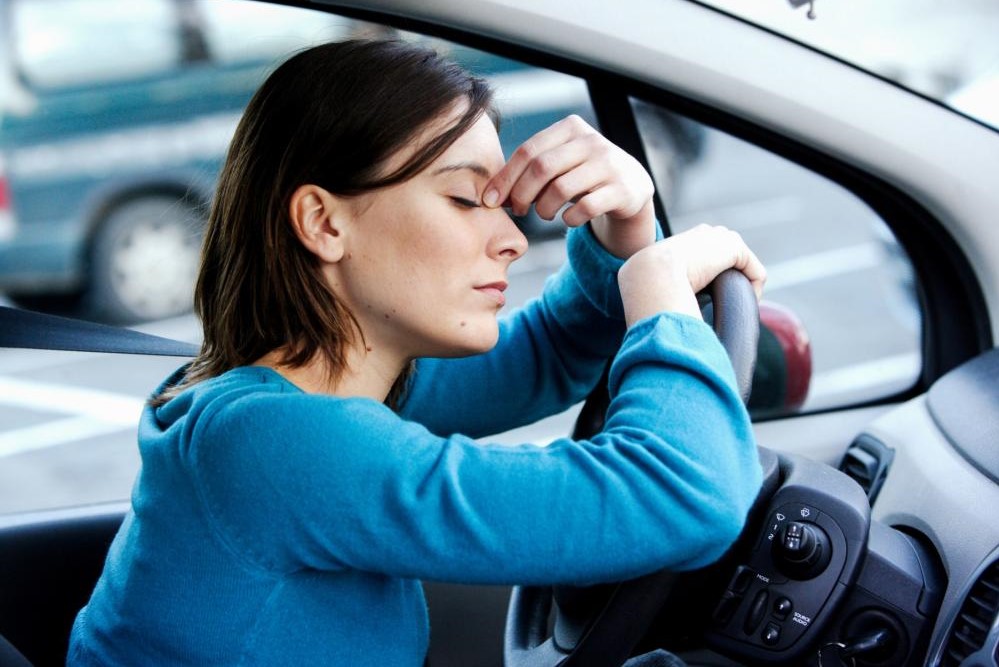
Do You Know How to Treat Your Nausea?
Nausea is the feeling of having to vomit. Pregnancy, vertigo, motion sickness, digestive infections (such as food poisoning), reactions to medication, and alcohol are the most common causes of nausea, but there are others
Motion sickness—more specifically, seasickness—is actually where the word nausea comes from; it has the same roots as the word nautical
1 First Figure out Why You Feel Like Throwing Up
The best way to fix nausea is to fix the problem causing it. If the victim is getting motion sickness from a ride in the car—stop the car and take a break.
Some folks have an easier time if they are driving the car, so if that’s a choice, let them drive.
Reading or concentrating while riding can also trigger nausea, and the earlier you stop reading, the better you’ll feel.1
If alcohol caused the nausea, don’t drink any more alcohol.
Hair of the Dog is complete nonsense, by the way.
Since you can’t “cure” pregnancy or many of the other causes of nausea, here are a few things you can do to try reducing this miserable feeling.
2 Breathe
There are a few studies indicating that inhaling the fumes of isopropyl alcohol calm the feelings of nausea.
However, when isopropyl alcohol was compared to saline—saline doesn’t have a smell—both helped ease feelings of nausea equally well.
The authors suggested, and I tend to agree, that it was the deep, slow breathing that really made the patients feel better. In through the nose, out through the mouth. Repeat.2
3 Ginger or Vitamin B6
Ginger is emerging as a pretty good anti-nausea treatment.
Vitamin B6 also has had some success.
There’s not yet enough information to say whether ginger or vitamin B6 are safe in pregnancy (see below).
For everyone else, it appears that ginger (at least 1,000 milligrams or 1 gram) or vitamin B6 (10 milligrams) are worth a try.3
Pregnant women should be very careful about taking any type of medication or dietary supplement to control nausea and vomiting.
It’s very hard to test medications during pregnancy since the effects could be permanent and devastating.
Because of that, little evidence exists to show how safe certain medications are for pregnancy and even less evidence exists for dietary supplements, a category that doesn’t have the greatest track record for research anyway.4
4 Anti-Emetics (Anti-Nausea Medications)
Antihistamines—usually used for allergies—are pretty good anti-nausea medications, and a few are sold strictly for that purpose.
Two other classes of anti-nausea medicines are also available.
Anti-emetics, the official term for anti-nausea medications, are not perfect.5
Food poisoning causes vomiting for a reason. It is the body’s way of emptying the stomach of the offending bacteria.
For the first 24 hours at least, vomiting from food poisoning should just happen.
Your body knows when it really needs to expel nasty stuff from your gut and, when it does, anti-emetics aren’t going to help much.
If vomiting doesn’t stop after 24 hours, victims of food poisoning may need to see a healthcare provider.6
Too much uncontrolled vomiting can lead to dehydration.
Just like dietary supplements, medications aren’t always safe for use during pregnancy.
Like I said before, it’s very hard to test medications on a pregnant woman because failure can be absolutely devastating.
5 See the Healthcare Provider
If all else fails, go to the healthcare provider.
Because of the issues with pregnancy and anti-emetics, pregnant women should always consult with a healthcare provider before trying to treat any condition with medications.
For the rest of us, going to the healthcare provider should be the last resort, but there are some important triggers:7
- Signs of dehydration, fatigue or confusion deserve a trip to the healthcare provider’s office. If you are sick enough to have any of these, you shouldn’t wait any longer.
- Vomiting blood
- Extreme vertigo (dizziness) that won’t go away 8
If you can’t make the nausea go away and it is affecting your daily life, seeing your healthcare provider is the next logical step.
References:
- Cleveland Clinic. Motion sickness.
- Anderson LA, Gross JB. Aromatherapy with peppermint, isopropyl alcohol, or placebo is equally effective in relieving postoperative nausea. J Perianesth Nurs. 2004;19(1):29-35. doi:10.1016/j.jopan.2003.11.001
- Firouzbakht M, Nikpour M, Jamali B, Omidvar S. Comparison of ginger with vitamin B6 in relieving nausea and vomiting during pregnancy. Ayu. 2014;35(3):289-93. doi:10.4103/0974-8520.153746
- Harvard Health Publishing. What to ask your doctor before taking dietary supplements.
- familydoctor.org from the American Academy of Family Physicians. Antiemetic medicines: OTC relief for nausea and vomiting.
- Harvard Health Publishing. Food poisoning.
- Cleveland Clinic. Nausea & vomiting: When to call the doctor.
- NHS inform. Vertigo.
Additional Reading
- Anderson, L.A., and J.B. Gross. Aromatherapy With Peppermint, Isopropyl Alcohol, or Placebo Is Equally Effective in Relieving Postoperative Nausea. Journal of perianasthesia nursing.
- Chaiyakunapruk, N., et al. The Efficacy of Ginger for the Prevention of Postoperative Nausea and Vomiting: A Meta-analysis. American journal of obstetrics and gynecology.
- Pongrojpaw, D., C. Somprasit and A. Chanthasenanont. A Randomized Comparison of Ginger and Dimenhydrinate in the Treatment of Nausea and Vomiting in Pregnancy. Journal of the medical association of Thailand.
Read Also:
Emergency Live Even More…Live: Download The New Free App Of Your Newspaper For IOS And Android
Pinworms Infestation: How To Treat A Paediatric Patient With Enterobiasis (Oxyuriasis)
Intestinal Infections: How Is Dientamoeba Fragilis Infection Contracted?
Gastrointestinal Disorders Caused By NSAIDs: What They Are, What Problems They Cause
Intestinal Virus: What To Eat And How To Treat Gastroenteritis
Train With A Mannequin Which Vomits Green Slime!
Pediatric Airway Obstruction Manoeuvre In Case Of Vomit Or Liquids: Yes Or No?
Gastroenteritis: What Is It And How Is Rotavirus Infection Contracted?
Recognising The Different Types Of Vomit According To Colour
Paroxysmal Positional Vertigo (BPPV), What Is It?



